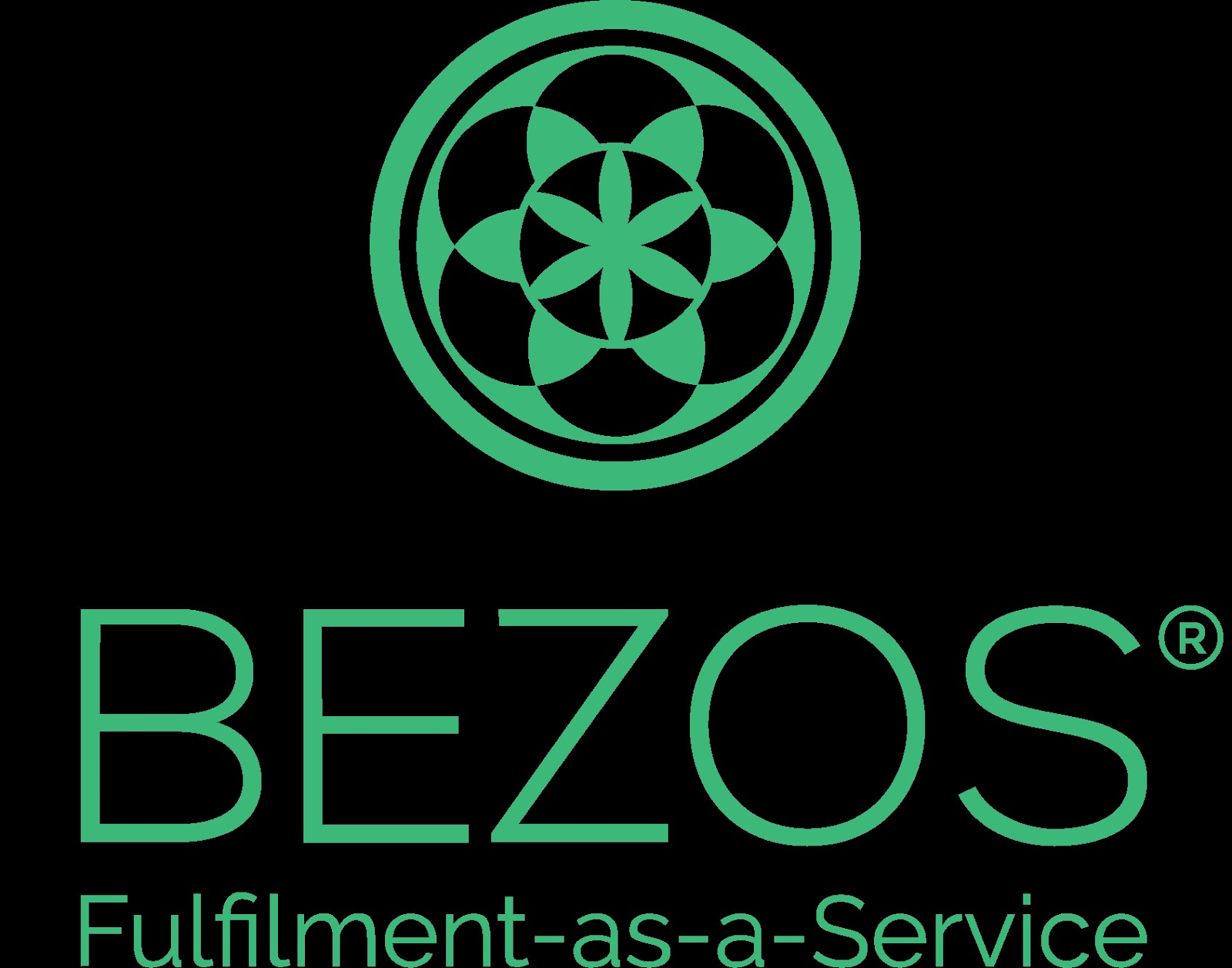Articles
Custom Clearance for Importing Goods in the EU
Introduction
Engaging in importing goods into the European Union (EU) requires dealing with the detailed process of customs clearance. This process serves as a safeguard for the EU's diverse interests.
The complexity of this procedure, with its myriad of regulations, intensive documentation, and associated taxes, can be quite daunting. However, understanding customs clearance is pivotal to the smooth transit of your goods, preventing any undesirable delays or costs.
At Bezos, we liaise with eCommerce brands that want to speed up order fulfilment and avoid unnecessary customs-related delays and speed things up. Thanks to our expert fulfilment solution, our clients can rest safe in the knowledge that their products are in good hands.
To show you all the behind-the-scenes work we can do, we’ll break down the entire customs clearance process and provide a clear roadmap to successful customs clearance within the EU.
Key Points
- Customs clearance permits the entry of non-EU goods into the EU market, making certain that trade policies and safety standards are complied with. It also helps to collect import taxes and duties, contributing to the EU's budget and funding initiatives.
- Before customs clearance, you need to check for import restrictions and verify trade agreements with the EU. You should also assess compliance with origin rules, applicable tariff rates, and other duties and taxes.
- Documentation for customs clearance includes EORI number, ENS Declaration, commercial invoice, packing list, and Bill of Lading. These documents should all be ready before the goods arrive at the border.
- Once they’ve cleared customs, goods can circulate freely within the EU single market with standardised tax rates.
Unpacking Customs Clearance in the EU
Customs clearance is a critical regulatory procedure that allows goods imported from non-EU countries to gain official admittance into the EU market. This process plays an essential role in protecting the EU's interests – economic, environmental, and societal – while ensuring strict adherence to its trade policies.
Moreover, the customs clearance process also assists in the collection of import taxes and duties. These revenues contribute significantly to the EU's budget, helping fund various initiatives and projects across the member states.
Customs Clearance in the EU – A Comprehensive Checklist
Before you start preparing the necessary documentation to clear customs, you should ensure that you’ve gone through every item in the following checklist:
- Check for import restrictions (as customs clearance in the EU after Brexit has brought about new rules for UK imports)
- Verify the EU's trade agreement with the country of import
- Assess compliance with relevant rules of origin and determine applicable tariff rates
- Evaluate other potential duties and internal taxes
- Identify EU health, safety, environmental, and technical requirements
- Ensure product compliance and obtain necessary certification from the supplier
- Review EU packaging and labelling rules
- Determine if a certificate of origin is needed and which type is required based on the EU-country of origin trade agreement or arrangement
Once you’ve ticked off everything on the list, you’re ready to start collecting the relevant documentation for customs clearance in the EU.
Necessary Documentation for Customs Clearance in the EU – Before Goods Arrive at the Border
Navigating the EU customs clearance process involves a host of detailed documentation. Each document has its unique purpose and plays a significant role in facilitating the smooth transit of goods through customs. In this section, we’ll provide a comprehensive overview of these critical documents.
EORI number
An Economic Operator Registration and Identification (EORI) number is an essential component of the EU customs clearance process. This unique identification number, allocated to businesses or individuals engaged in the import or export of goods within the EU, is a mandatory requirement for conducting trade within the EU territories.
Importantly, EORI numbers can be used throughout the UK and the EU. Moreover, UK businesses wishing to apply for an EORI number can do so by submitting an application on the government's official website.
ENS Declaration
An Entry Summary Declaration (ENS) is a crucial part of the customs clearance process in the EU. It provides customs authorities with advance cargo information, so they can conduct risk analyses. Specifically, the ENS includes details about the consignor, consignee, and a description of the goods, including their commodity code and package details. It also covers transport details like the route and the means of transport.
The ENS must be submitted before the goods are brought into the customs territory of the EU. It is submitted electronically, and it is essential to ensure all the information is accurate to avoid any potential issues or delays.
The Commercial Invoice: Your Transaction's Record
The commercial invoice is the primary document used in international trade, outlining the crucial details of the transaction. This record of the sale provides specifics such as the seller and buyer's details, a description of the goods, the cost, and the terms of delivery. It's not merely an invoice; it's a fundamental component of the customs clearance process.
As customs officials use the commercial invoice to verify goods, it is pivotal for calculating the payable import duties and taxes. Therefore, ensuring that this document is accurate, complete, and transparent will prevent any potential delays or issues during customs clearance.
Packing List: Detailing Your Shipment's Contents
The packing list, while seemingly simple, serves a vital role in the customs clearance process. It gives a detailed account of the shipment's contents, including the number of items, their description, and their packaging details, such as weight and dimensions.
This document is particularly important for customs inspections. Authorities use the packing list to verify the goods' nature, quantity, and compliance with EU regulations. Consequently, any inaccuracies or discrepancies in the packing list could result in unnecessary delays or complications.
Bill of Lading (BOL): The Shipment's Receipt
The Bill of Lading is another document of high significance in the customs clearance process. Acting as a contract between the freight carrier and the shipper, the BOL serves as a receipt for the goods. It also specifies the type of goods, their quantity, their destination, and the name of the vessel carrying them.

The BOL is crucial for customs officials as it offers an overview of the goods being imported. They use it to cross-verify the details provided in other documents like the commercial invoice and the packing list. Therefore, ensuring the accuracy and completeness of the BOL is vital for a smooth customs clearance process.
Import Declaration
The import declaration is a mandatory document required by customs authorities. It provides detailed information about the goods, allowing the authorities to evaluate and calculate the import duties and taxes.
Customs officials also use it to determine whether the goods meet all the necessary import regulations and standards. Therefore, an accurate and complete declaration is essential for ensuring hassle-free and prompt customs clearance.
What You Need to Do When Your Goods Arrive at the Border
Once your imported goods have arrived at the border of the EU country you’re importing them into, they’ll be placed into temporary storage in order for the customs documentation to be checked. This customs-clearing process never lasts longer than 90 days.
If you have correctly provided all the documentation outlined above, you’ve got nothing to worry about – 99% of the time, your goods will be cleared, and they’ll be on their way to their destination.
However, there is always a small chance that your goods may be selected for a random document or physical check. If this happens, you have no option but to wait until the relevant authorities have completed their check.
Similarly, if any documentation is missing, you might be asked to submit further documentation before the goods can be cleared. It is very important that you do this as soon as possible, as you might have to pay hefty storage costs for non-cleared goods.
Selling Your Goods After Customs Clearance in the EU
Have your goods cleared customs? Congratulations! Now, you’re ready to sell them. As the EU is a free, single market, your goods can be circulated freely within the constituent countries without the need for additional customs procedures.
Another benefit of selling goods in the EU is the harmonisation of taxes on imports from outside the EU. Irrespective of the specific EU country of entry, all member states uniformly apply the same tariff rates on goods imported from non-EU countries. This means that you won’t have to spend hours figuring out your tariff costs.
Streamline Your EU Imports With Bezos – Unleash New Market Opportunities
Is your business ready to take the leap into global markets? Then look no further than Bezos – your reliable and comprehensive goods fulfilment services provider for streamlining your import process.
With a robust network of distribution centres across the UK and fulfilment hubs in 16 other countries, Bezos is poised to catapult your eCommerce venture to a global level.

So, what makes Bezos different from other fulfilment companies? In a few words, it’s all about our inclusive and automated service repertoire tailored to elevate your import process like never before. We are open to integrating any particular needs you might have.
At Bezos, we understand that the import business may come with unexpected hitches. That's why we value transparency and openness. We offer detailed shipment tracking and pledge to address all queries within a two-hour window. This promise to customer service is reinforced by our top-notch fulfilment software!
And the ultimate incentive? We offer freedom from binding long-term contracts! If this sounds like the import solution you've been searching for, don't delay. Get in touch with us today to speak with one of our savings experts.
Take your business to new heights with Bezos – your leading fulfilment company in the UK!
FAQs
Are there customs duties from the UK into the EU?
Yes. Regarding customs, the UK is treated equivalently to any other non-EU nation. This implies that customary customs procedures and formalities are in place for trade between the UK and the EU. Similarly, certain goods require a special licence for import or export, such as waste, specific hazardous chemicals, and GMOs.
What is the EU customs duty limit?
It is €150, excluding transport and insurance costs. This means that goods valued below that rate will not be subject to duties. However, this does not apply to tobacco, alcoholic products, or perfumes.
How long does it take to clear EU customs?
It depends on whether you’ve correctly submitted the relevant documentation. If this is the case, clearing EU customs can take as little as 30 minutes. If not, it may take up to 90 days. Your goods may also be subject to random checks, which can delay the clearing process.
What documents are required for imports into the EU?
Some of the documentation you’ll need to present before your goods arrive at the border are your EORI number and ENS declaration, a commercial invoice and packing list, a Bill of Lading, and an important declaration.
As a part of the Bezos.ai team, I help e-commerce brands strengthen their fulfilment operations across the UK, Germany, the Netherlands and the US. I work with merchants that want to simplify logistics, reduce costs and expand into new markets. I’m also building my own e-commerce brand, which gives me practical insight into the challenges founders face. In my writing, I share fulfilment strategies, growth lessons and real-world advice drawn from both sides of the industry.












